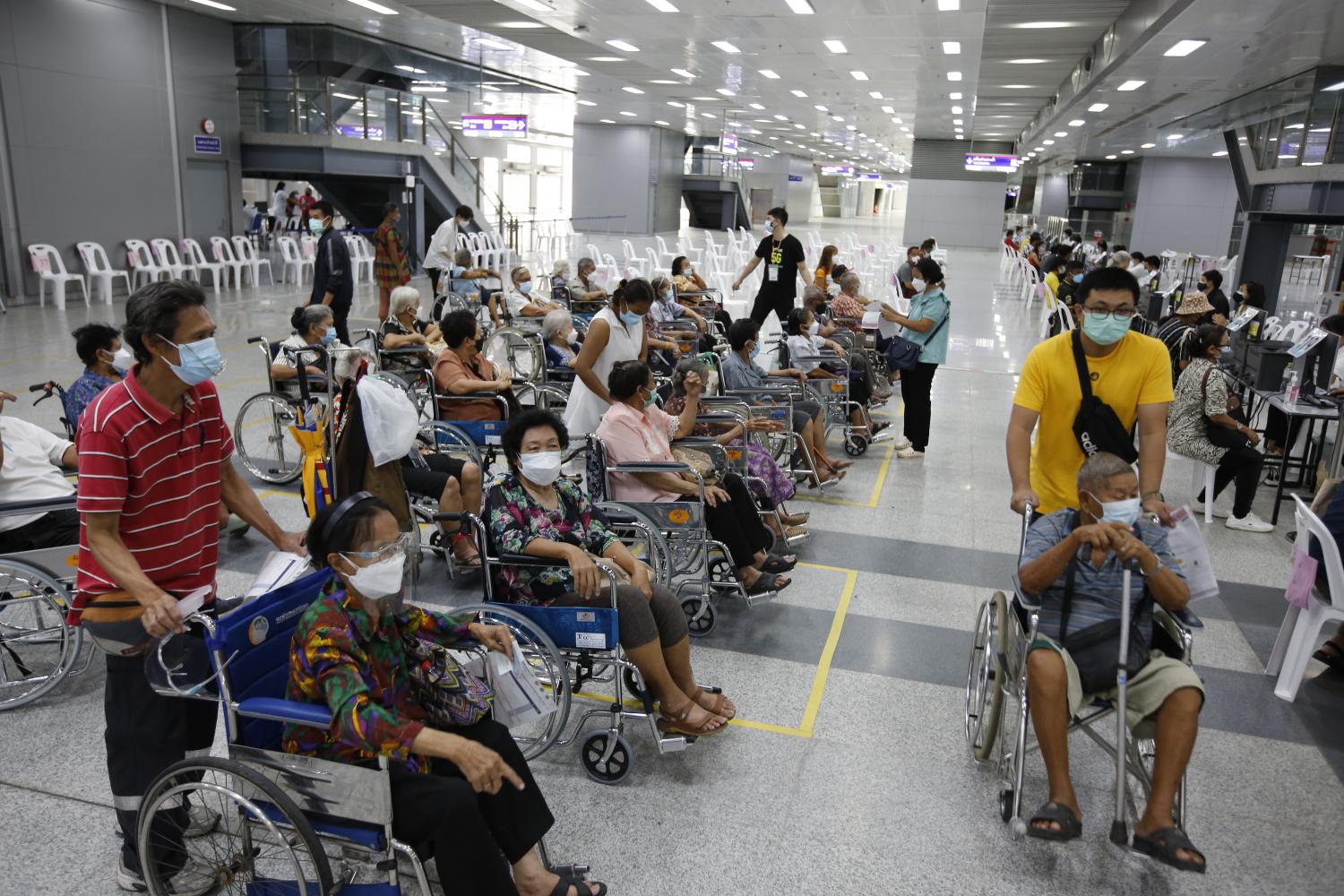Specific information that addresses immediate concerns of people, especially those in high-risk groups, is needed if authorities are to boost the Covid-19 vaccine uptake rate, a poll has found.
The International Health Policy Program (IHPP), Ministry of Public Health, recently conducted a survey to learn about the influence of the infodemic on Thai people's willingness to receive Covid-19 vaccines.
An "infodemic" is described by the World Health Organization as an overabundance of information, both true and false, which can undermine the public health response and harm people's health.
The poll, which ran at two-week intervals from March to May, covered more than 130,000 people throughout the country. Almost half of the respondents or 44% were farmers, with 39% residing in Covid-19 controlled areas and 26% suffering from one of the seven underlying diseases prescribed by the public health ministry as criteria for vaccine priority.
While many people now want to receive the jab amid the third wave of the outbreak, an increase from 60% in March to 69% in May, the willingness among risk-groups including the elderly, people living in Covid-19 controlled areas, and those in risky professions or suffering from underlying diseases rose only slightly above the mean.
Among all groups, the mean percentage of people receiving the vaccine is 56%. The survey also found that only 59% of people who are over 60 expressed their desire to be vaccinated.
Further, less than half or 47% of people who live in Covid-19 controlled areas are willing to receive the jab, which is lower than those living in lower-risk areas (61%).
The rates are even lower among people who are in high-risk professions such as vendors or motorcycle taxis (53%) and those with underlying diseases (52%), which is lower than those with no underlying diseases at 53%.
"The finding is noteworthy because the authorities have run a number of campaigns encouraging people in high-risk groups to take up the vaccine. But according to the survey, there is almost no difference in the willingness between those in the high-risk group and others," said Dr Hathairat Kosiyaporn, an IHPP health policy and system research fellow.
As of July 6, the Centre for the Covid-19 Situation Administration said 12.9% of the elderly had received their first dose while only 0.9% had completed two doses. As for people with underlying diseases, 15.6% have received the first jab with 3.5% completing two doses.

Dr Hathairat Kosiyaporn. Hathairat Kosiyaporn
Since the survey found that only one-fifth of respondents would change their minds if they receive more information, Dr Hathairat said the campaigns so far might not have addressed people's concerns.
The survey found that specific information that could make people change their mind about the vaccination are updates about the disease, plus the effectiveness and side-effects of vaccines.
Dr Hathairat said that authorities could boost the vaccine uptake rate if they focus more on these issues.
She added, however, that the situation has become more complicated now since the government's vaccine supply and rollout in addition to other factors can influence people's decision-making process.

